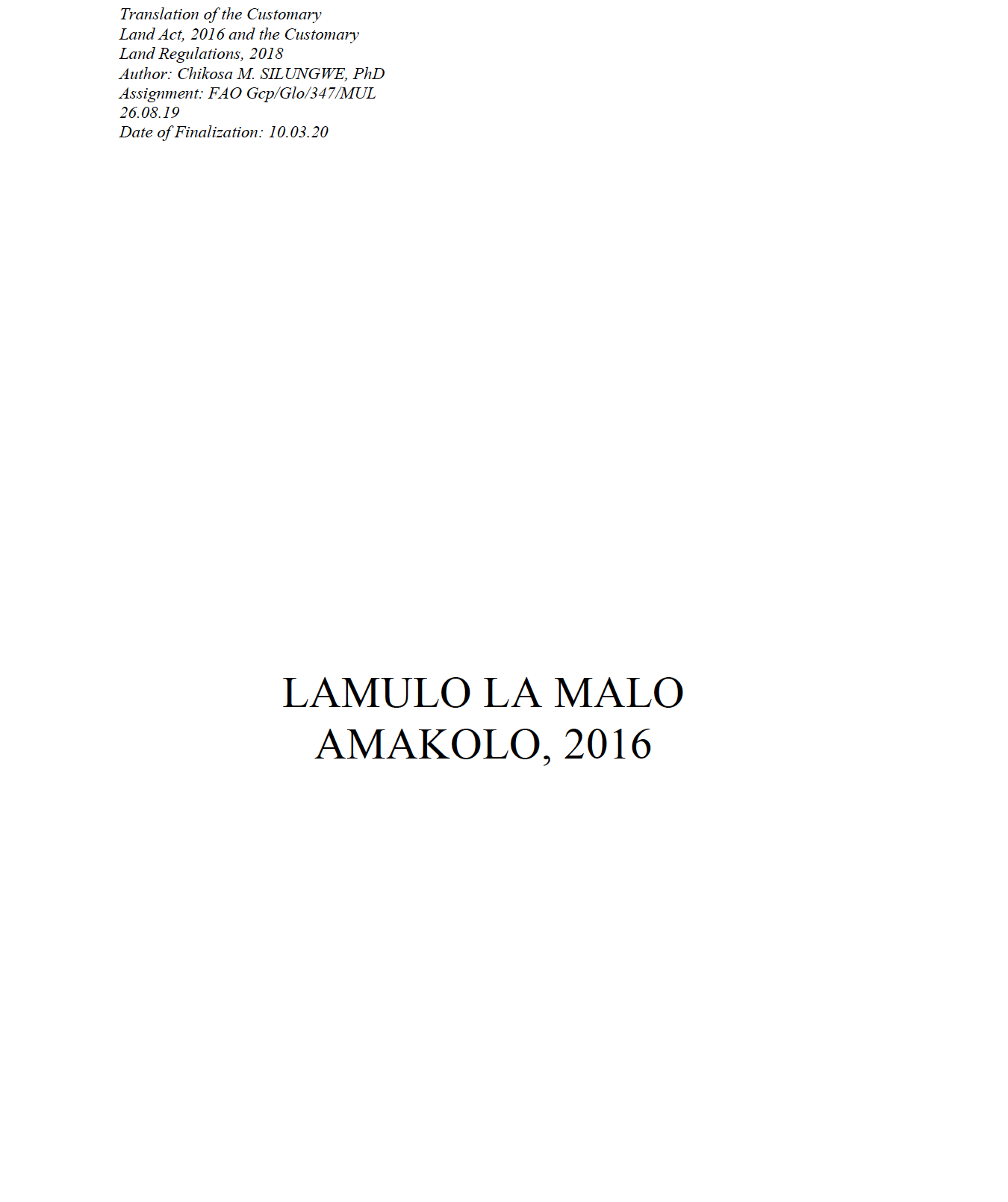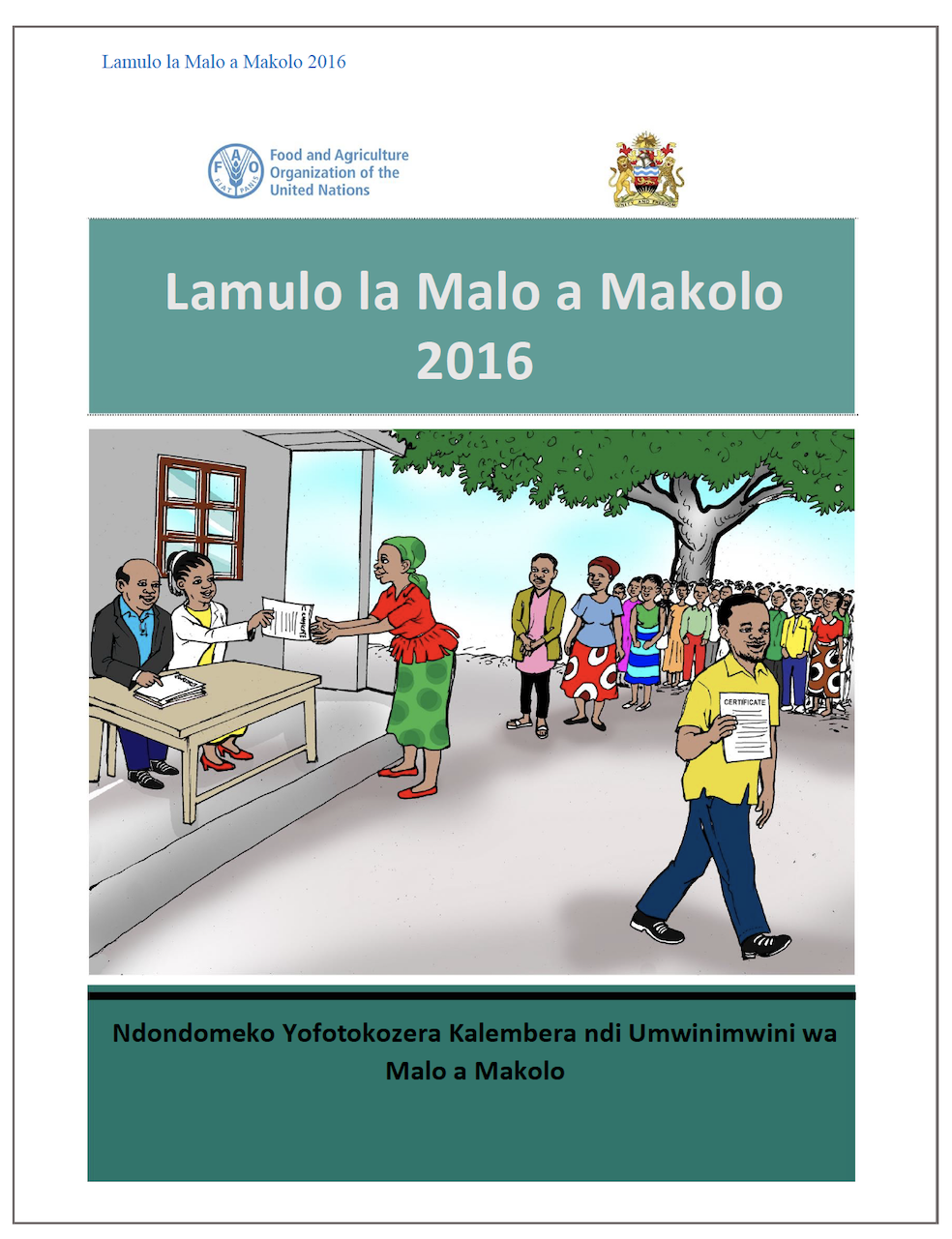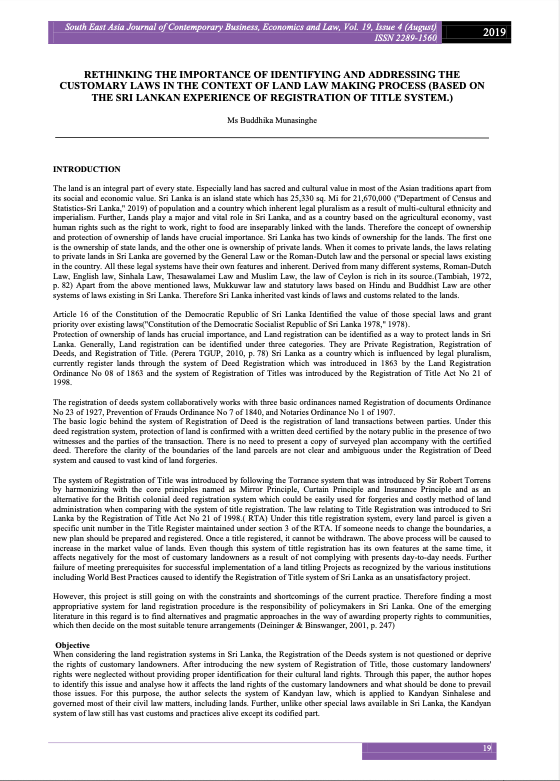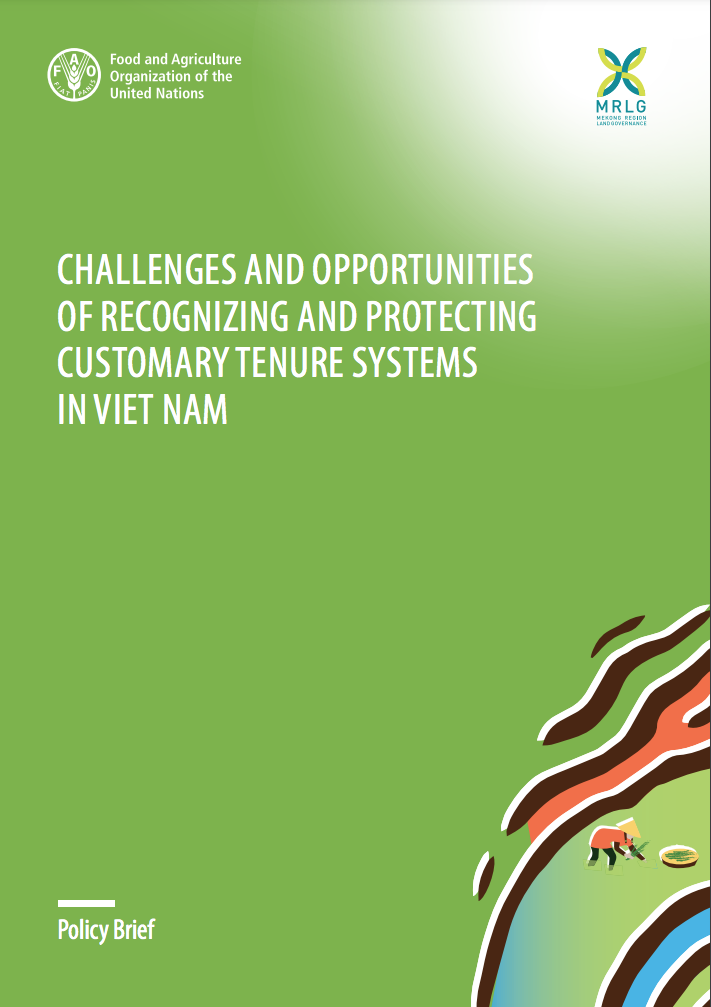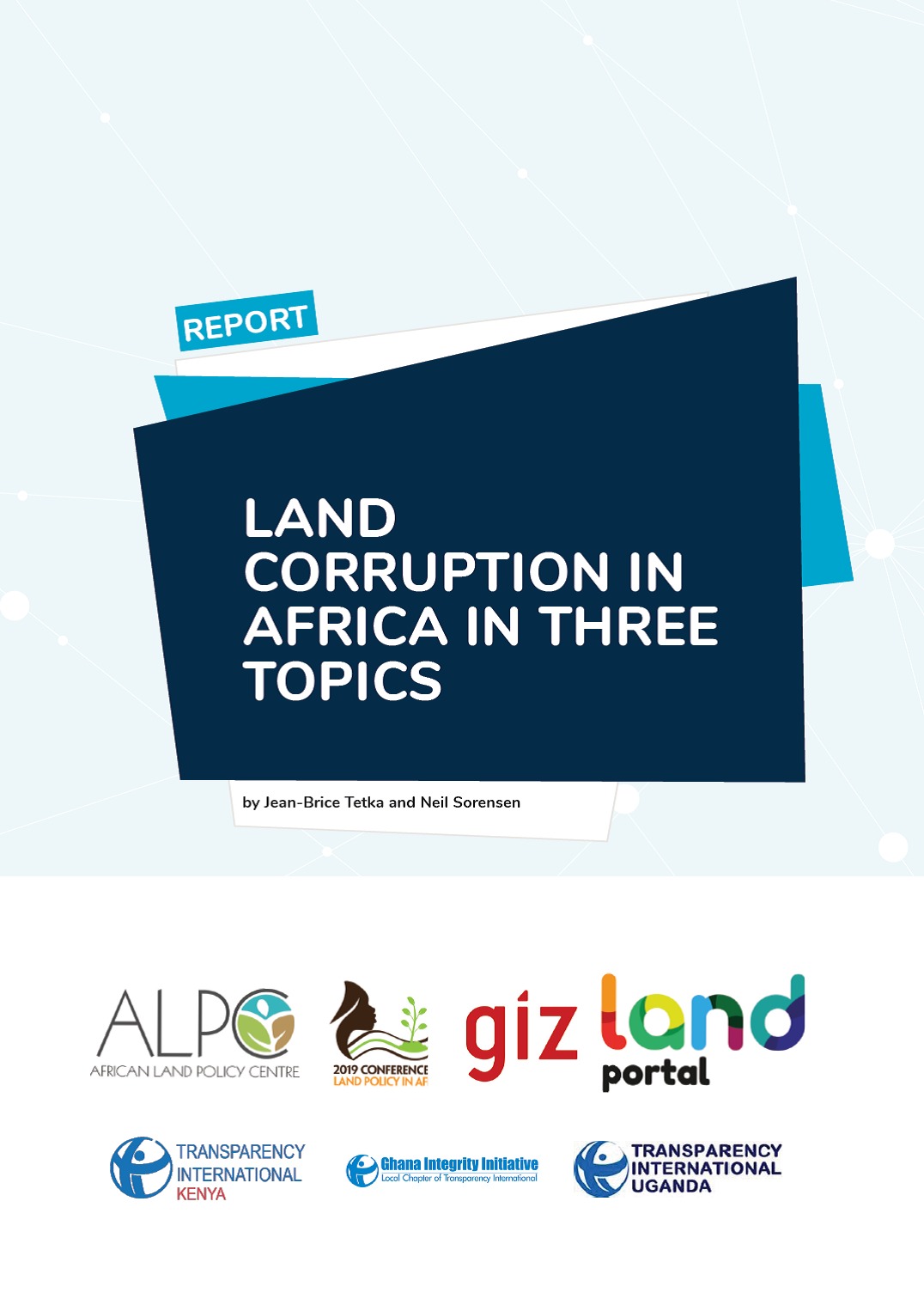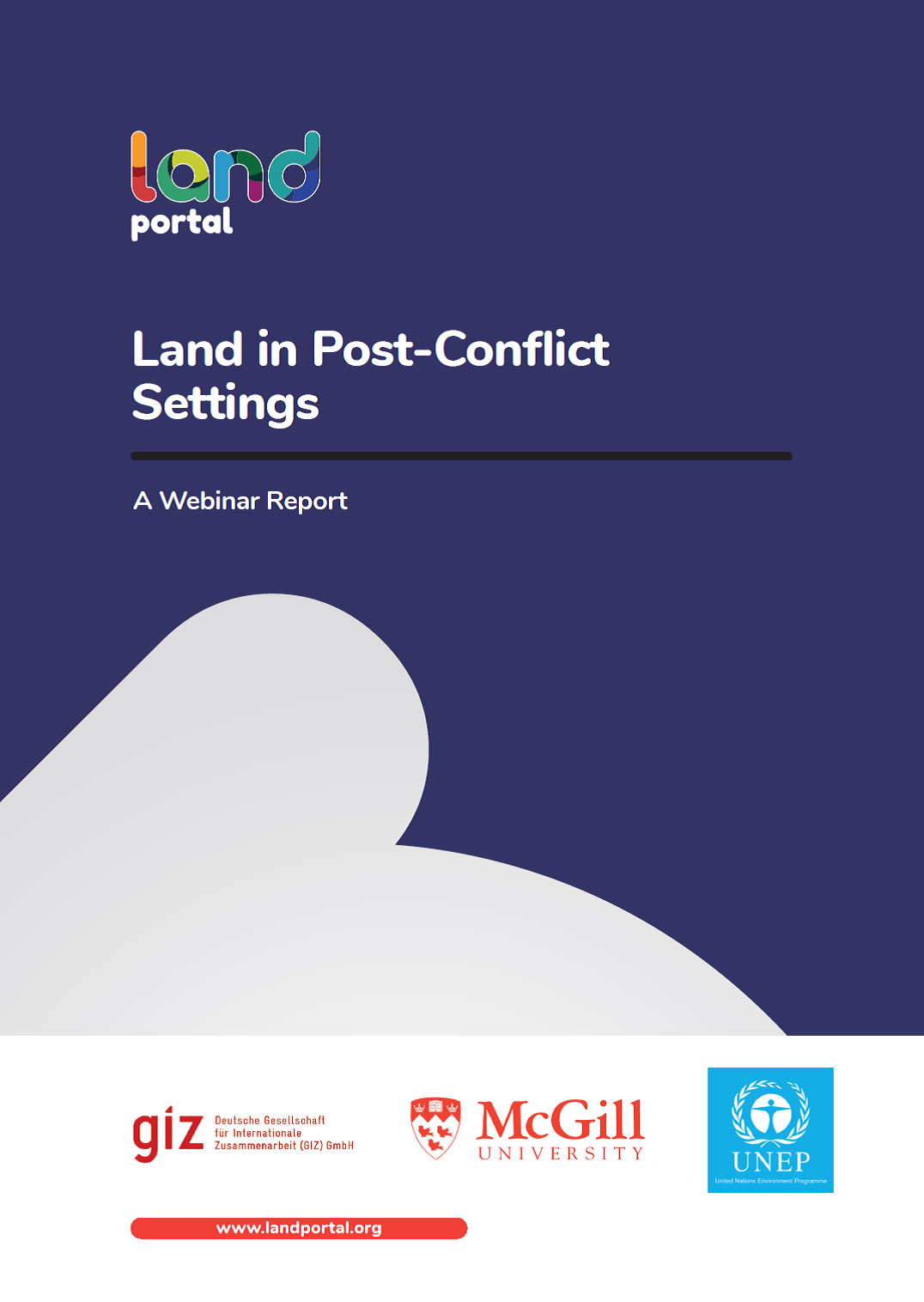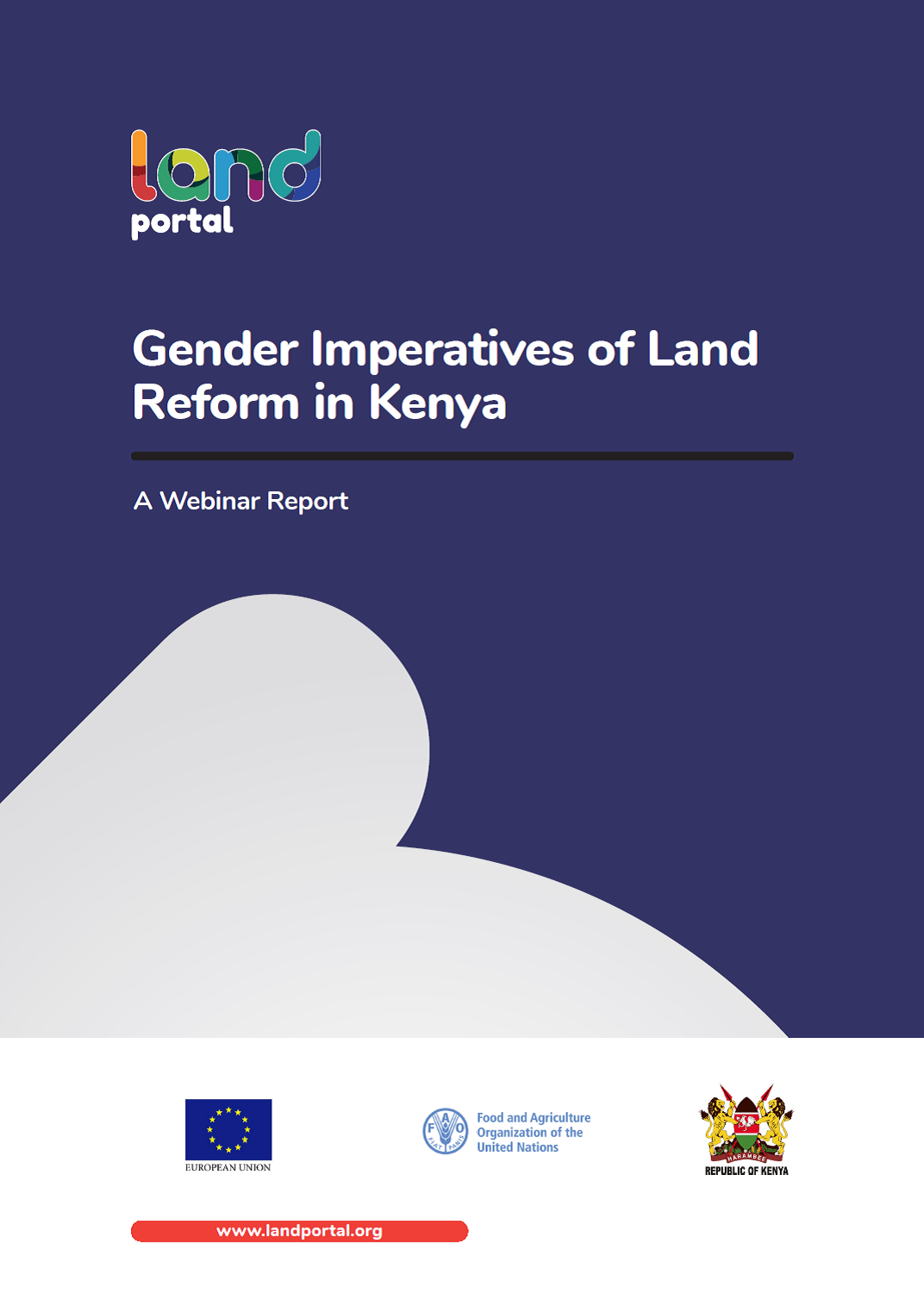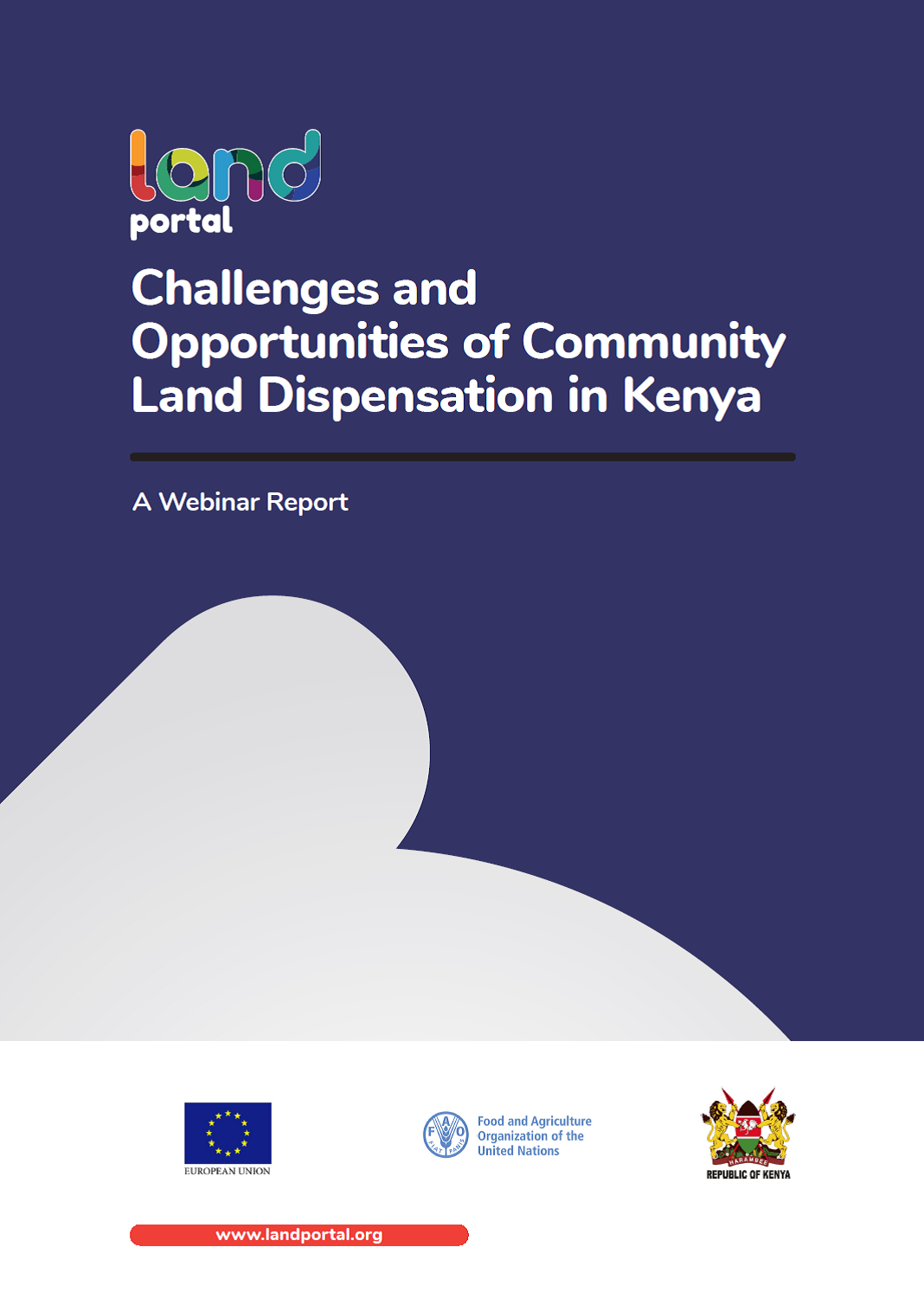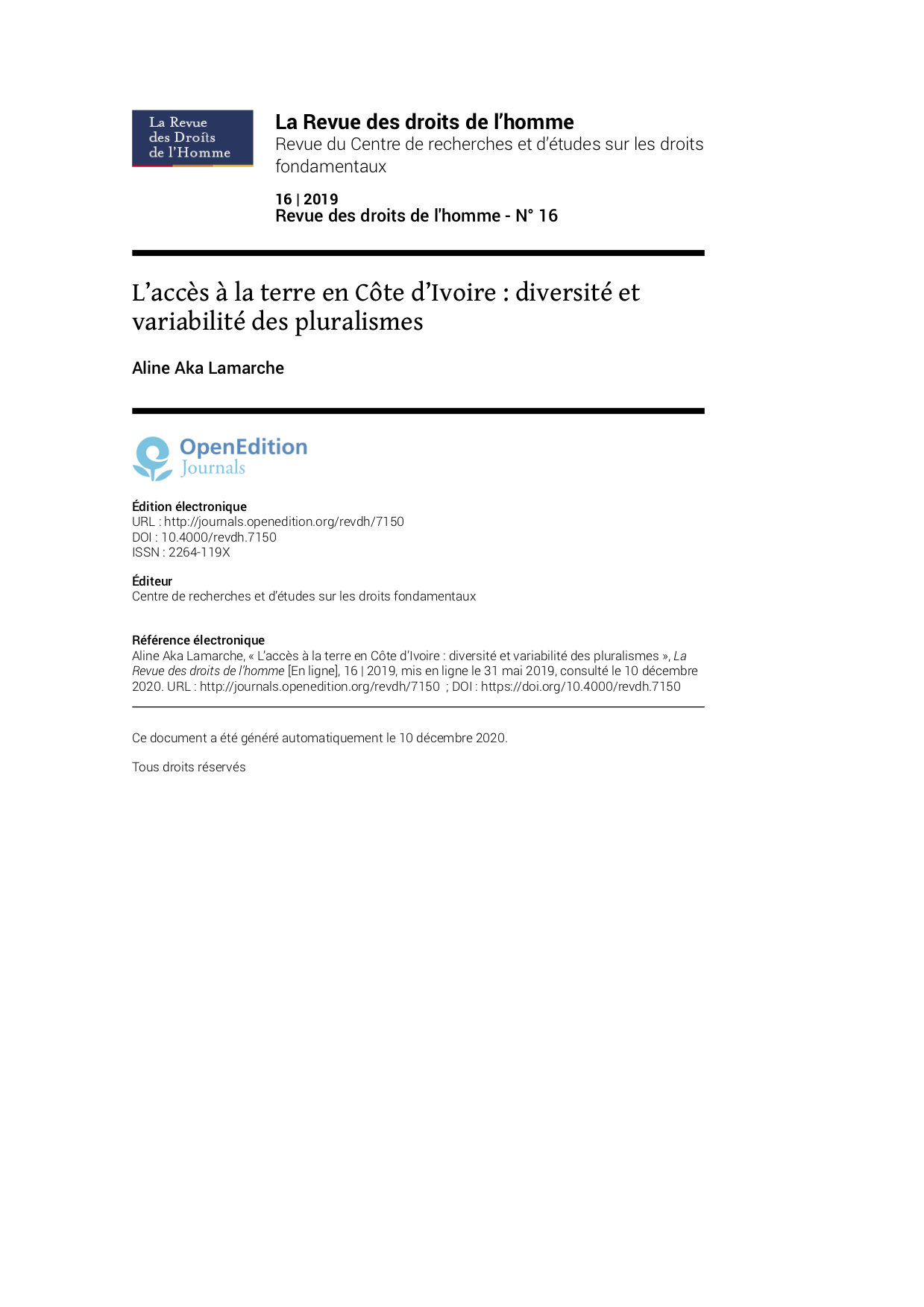Lamulo la Malo a Makolo 2016
Msonkhano Wodziwitsa Atsogoleri a ma Dipatimenti ndi Mabungwe a pa Boma
Mamembala a nthambi yoyendetsa chitukuko pa Boma ayenera kudziwa za lamulo la malo a makolo koyambirira kuti asankhe dera lomwe angakayambire ntchito zokhudza lamuloli.
Msonkhano Wodziwitsa Makomiti a ADC, VDC ndi Magulu a m’madera za Lamulo la Malo a Makolo
Strategic Framing of Adat in Land-Acquisition Politics in East Sumba
This article is about the strategic use of adat arguments in the politics of large-scale land acquisition. While customary (adat) communities are commonly depicted as small local minorities living in the forests and being guardians of the environment, in many situations such communities occupy a majority position within the district.
Strategic Framing of Adat in Land-Acquisition Politics in East Sumba
This article is about the strategic use of adat arguments in the politics of large-scale land acquisition. While customary (adat) communities are commonly depicted as small local minorities living in the forests and being guardians of the environment, in many situations such communities occupy a majority position within the district.
Rethinking the Importance of Identifying and Addressing the Customary Laws in the Context of Land Law Making Process (Based on the Sri Lankan Experience of Registration of Title System)
The land is an integral part of every state. Especially land has sacred and cultural value in most of the Asian traditions apart from its social and economic value. Sri Lanka is an island state which has 25,330 sq.
Challenges and opportunities of recognizing and protecting customary tenure systems in Viet Nam
This policy brief was developed in order to enable a meaningful engagement and policy dialogue with government institutions and other relevant stakeholders about challenges and opportunities related to recognizing customary tenure in Viet Nam.
Strategic Framing of Adat in Land-Acquisition Politics in East Sumba
This article is about the strategic use of adat arguments in the politics of large-scale land acquisition. While customary (adat) communities are commonly depicted as small local minorities living in the forests and being guardians of the environment, in many situations such communities occupy a majority position within the district.
Land Corruption in Africa in 3 Topics
From July 17 to August 7, 2019, the Land Portal Foundation, the African Land Policy Center, GIZ and Transparency International Chapters in Ghana, Kenya and Uganda co-facilitated the dialogue Land Corruption in Africa addressing the role of traditional leaders in customary land administration, forced evictions as a form of land corruption and its Impact on women’s land rights and an analysis of
Webinar Report: Land in Post-Conflict Settings
Post-war societies not only have to deal with continuing unpeaceful relations but also land-related conflict legacies, farmland and forest degradation, heavily exploited natural resources, land mines, a destroyed infrastructure, as well as returning refugees and ex-combatants.
Gender Imperatives of Land Reform in Kenya
The webinar on the Gender Imperatives of Land Reforms in Kenya took place on 23 April, 2019.
This webinar featured key experts involved in promoting and working towards the gender imperatives of land reforms in Kenya. It was co-hosted by the European Union, the Government of Kenya, the Food and Agriculture Organization of the United Nations and the Land Portal Foundation.
Challenges and Opportunities of Community Land Dispensation in Kenya
The Community Land Act of 2016 provides a legal basis for protection, recognition and registration of community lands andhas provisions for management and administration of the land by the communities themselves. However, implementation of the act has been slower than anticipated. This is despite the current heightened investment interests in community lands for mega development projects.
L’accès à la terre en Côte d’Ivoire
En Côte d’Ivoire comme dans d’autres pays africain, le pluralisme juridique est l’origine d’une crise de la légalité et de crispations sociales. L’accès à la terre est emblématique des difficultés et des différends qui peuvent naître de la coexistence, issue de la colonisation, d’une pluralité de modes de normativité étatique et coutumier en jeu sur un même territoire.

